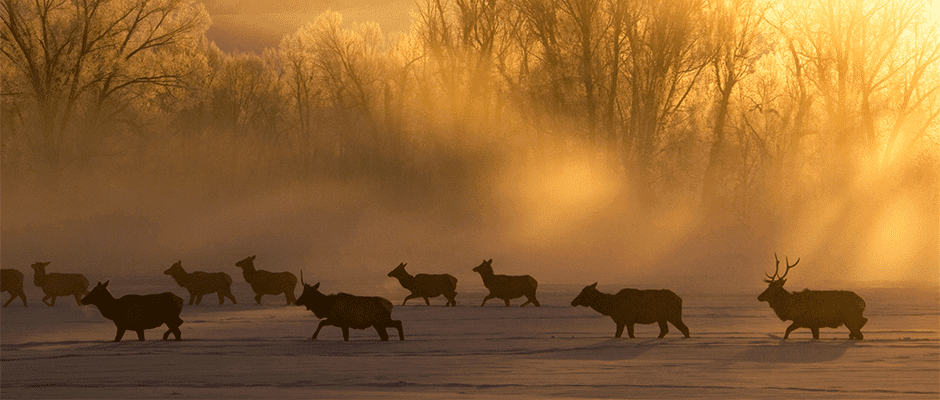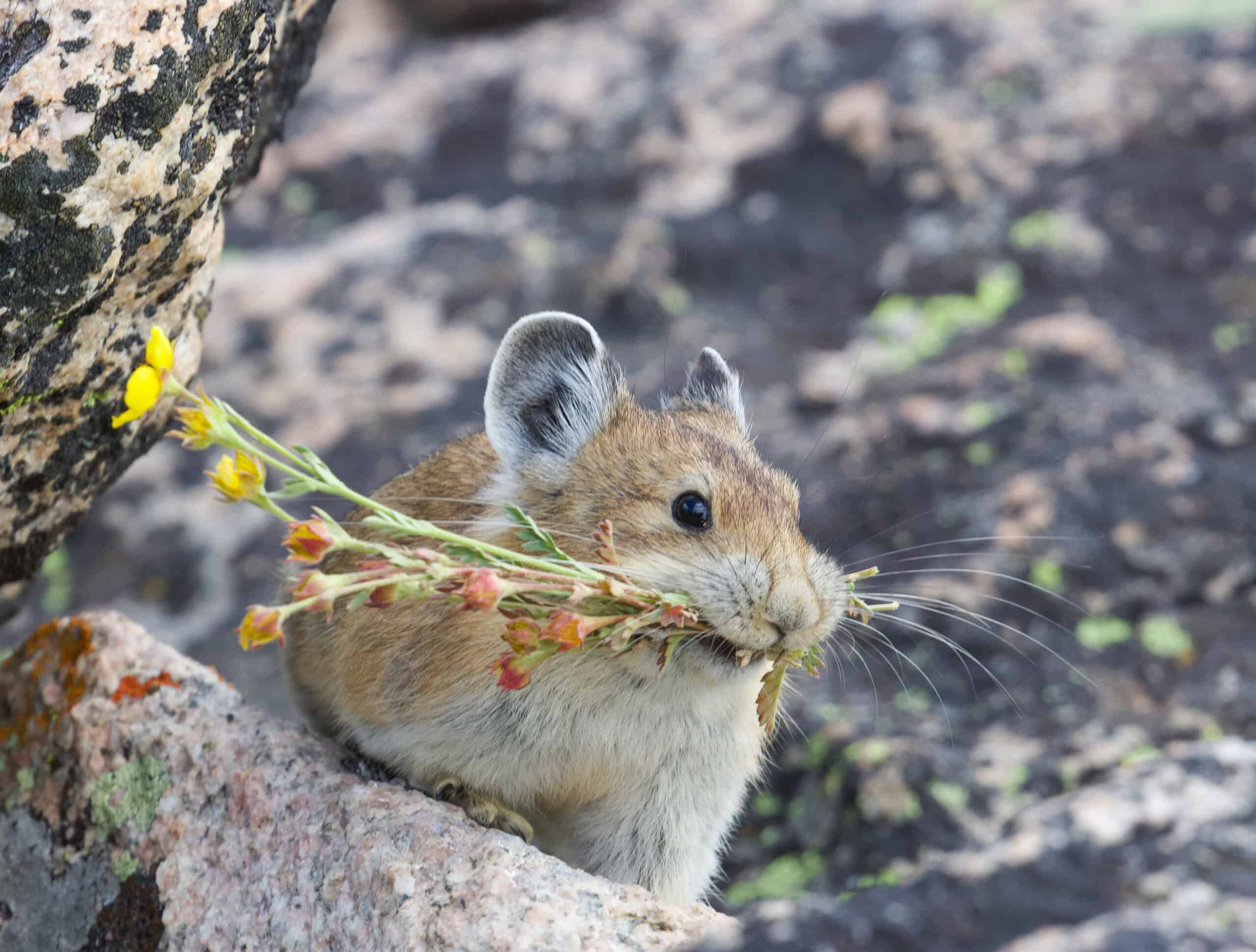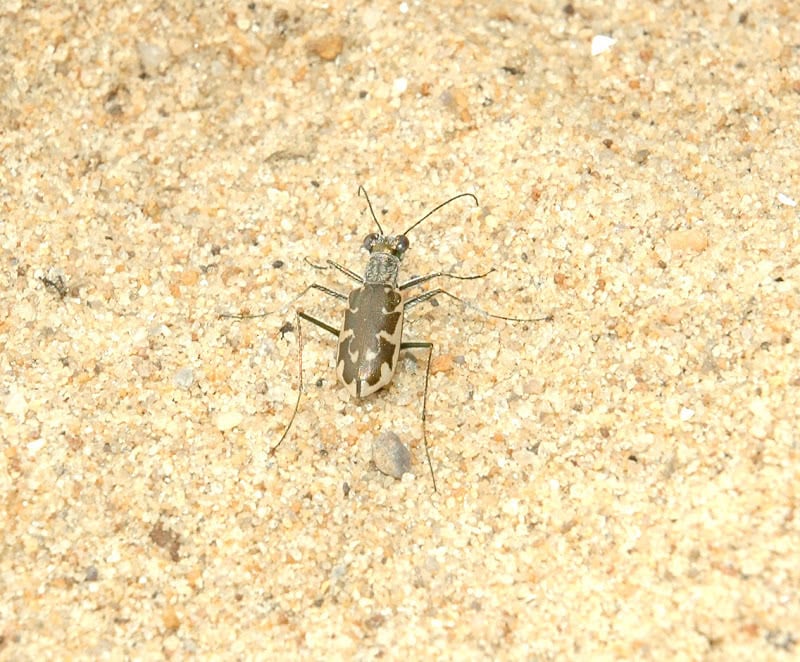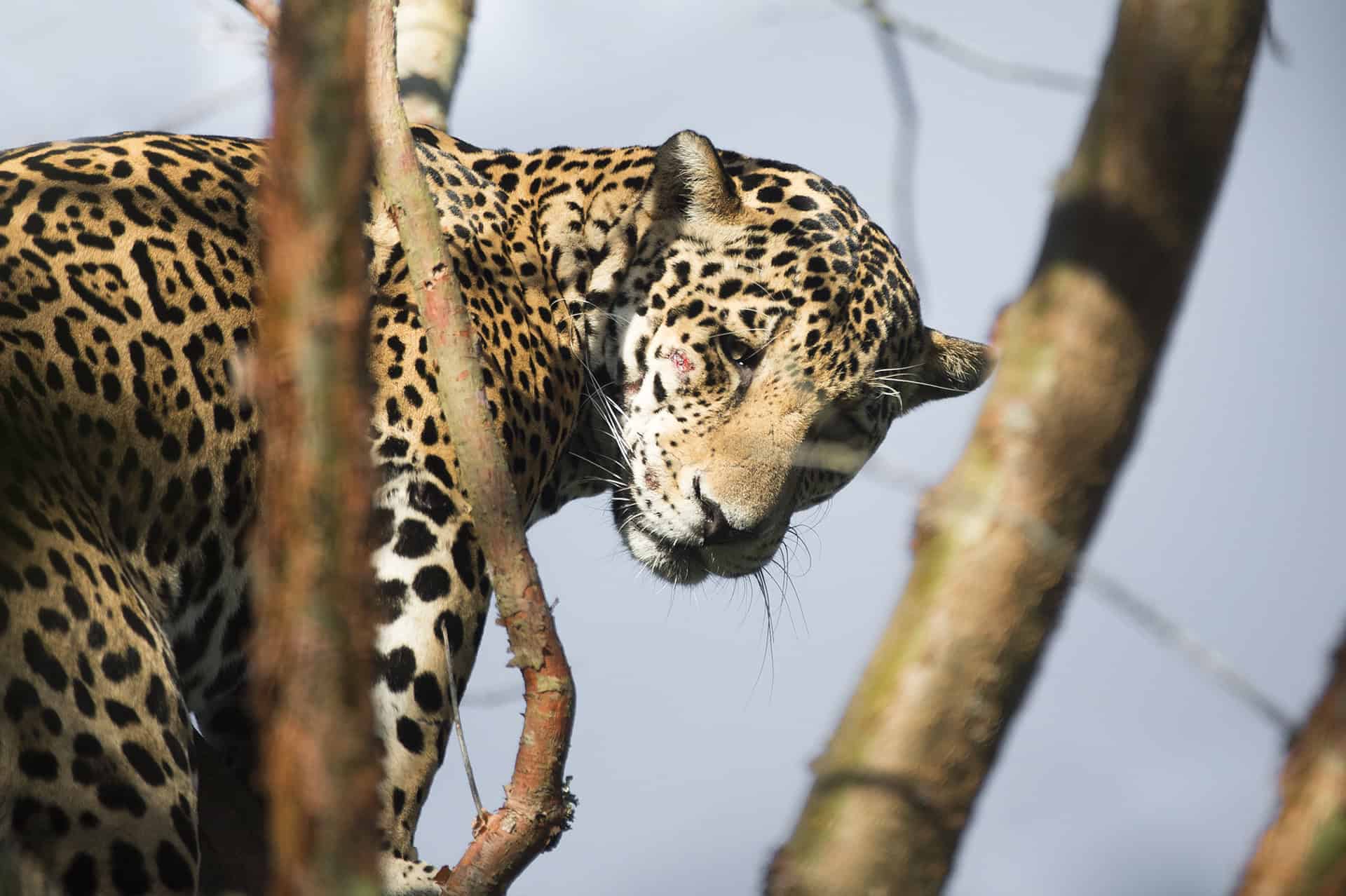Share this article
Disease linked to major reduction in elk pregnancy
The disease brucellosis has caused problems for cattle and bison (Bison bison), but it’s effects in elk (Cervus canadensis) have seemed minor. Recent research, however, suggests an additional impact on elk that hadn’t been identified before. In addition to causing abortions in elk, researchers found, brucellosis seems to be associated with significantly lower pregnancy rates.
The findings raise more questions than they answer, said TWS member Gavin Cotterill, a PhD candidate at Utah State University and lead author of the paper in Ecology and Evolution. Are the females not becoming pregnant in the fall? Or are they experiencing early reproductive losses, before the abortions typically occur? Does the disease affect implantation? Does it affect body condition? Or does it cause behavioral change that results in a failure to reproduce?
“The one meaningful answer that it really gives us is, it’s clearly relevant at a regional level for wildlife management,” Cotterill said. “We see it having this big impact on pregnancy. We also know it causes abortions. Together these things should reduce the number of calves that are produced.”
Cotterill and his team looked at elk in the Greater Yellowstone Ecosystem, studying data gathered over 20 years at Wyoming’s supplemental feed lots.
“The winter feed grounds for elk in Wyoming have long been viewed as a source for brucellosis contagion in much of the region,” Cotterill said. “They have been doing long-term disease surveys going back to the early ’90s.”
Analyzing pregnancy and disease data and running additional pregnancy tests on stored blood samples, his team found brucellosis went hand in hand with a substantial decline in the probability of pregnancy, particularly among young adult elk. In an average year, 60 percent of exposed 2-year-old elk were pregnant, compared to 91 percent of those without brucellosis. The results were similar to the effects of severe winters or droughts.
Given the abundance of elk in the region, Cotterill said, “it’s not an alarming result. But it raises interesting questions, and it’s really important for future research.”
It also ties in with other concerns about elk pregnancy declines. including the effects of stress caused by wolves (Canis lupus) and climate change.
“Certainly, now any study that is looking at the effects of wolves or climate should also be doing some testing for brucellosis,” he said.
Cotterill said his current work is modeling disease dynamics at the herd level in an effort to understand what drives disease outbreaks.
Header Image:
Brucellosis often spreads among elk at Wyoming’s winter feeding grounds.
©Mark Gocke/Wyoming Game and Fish Department








